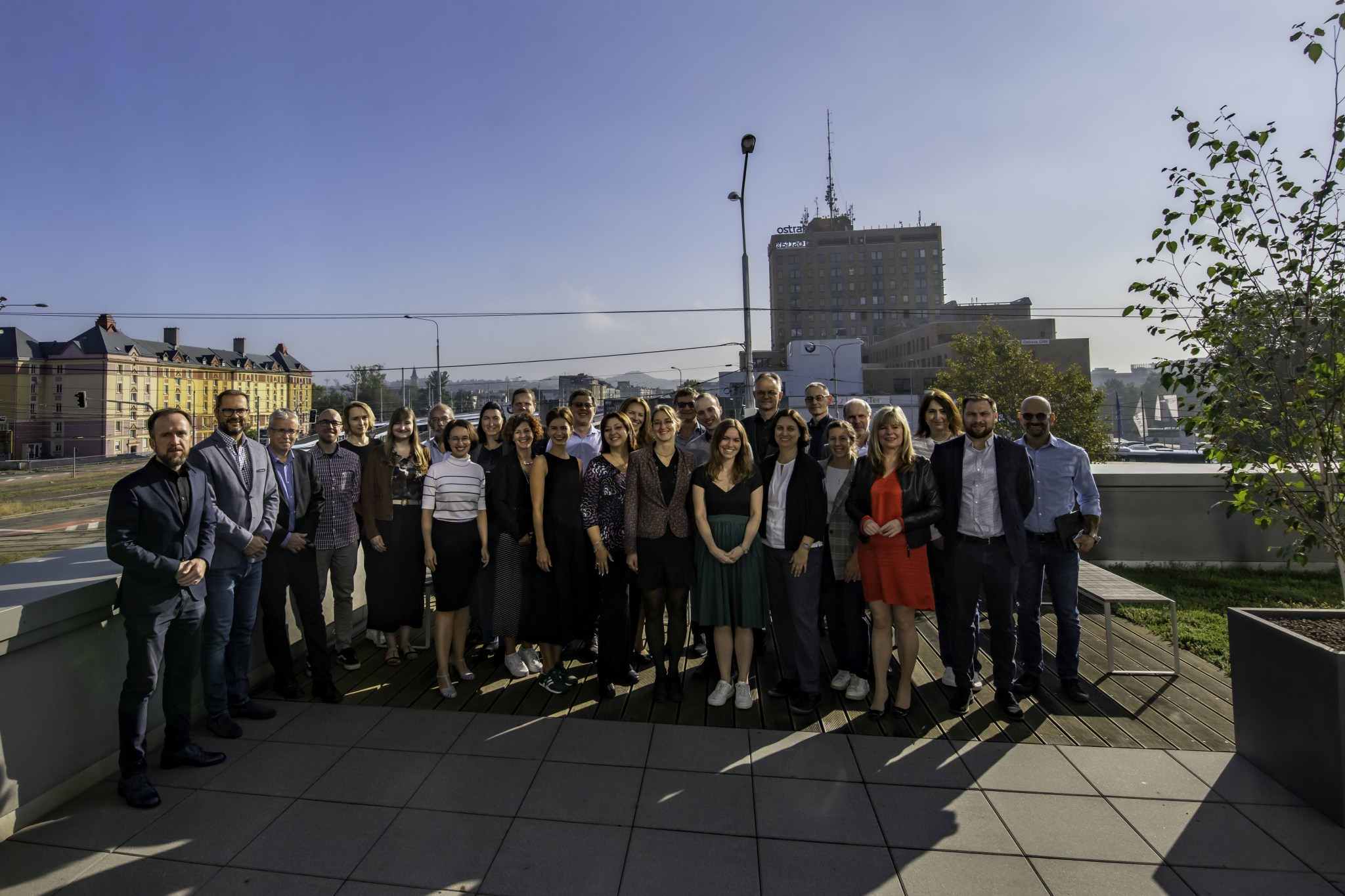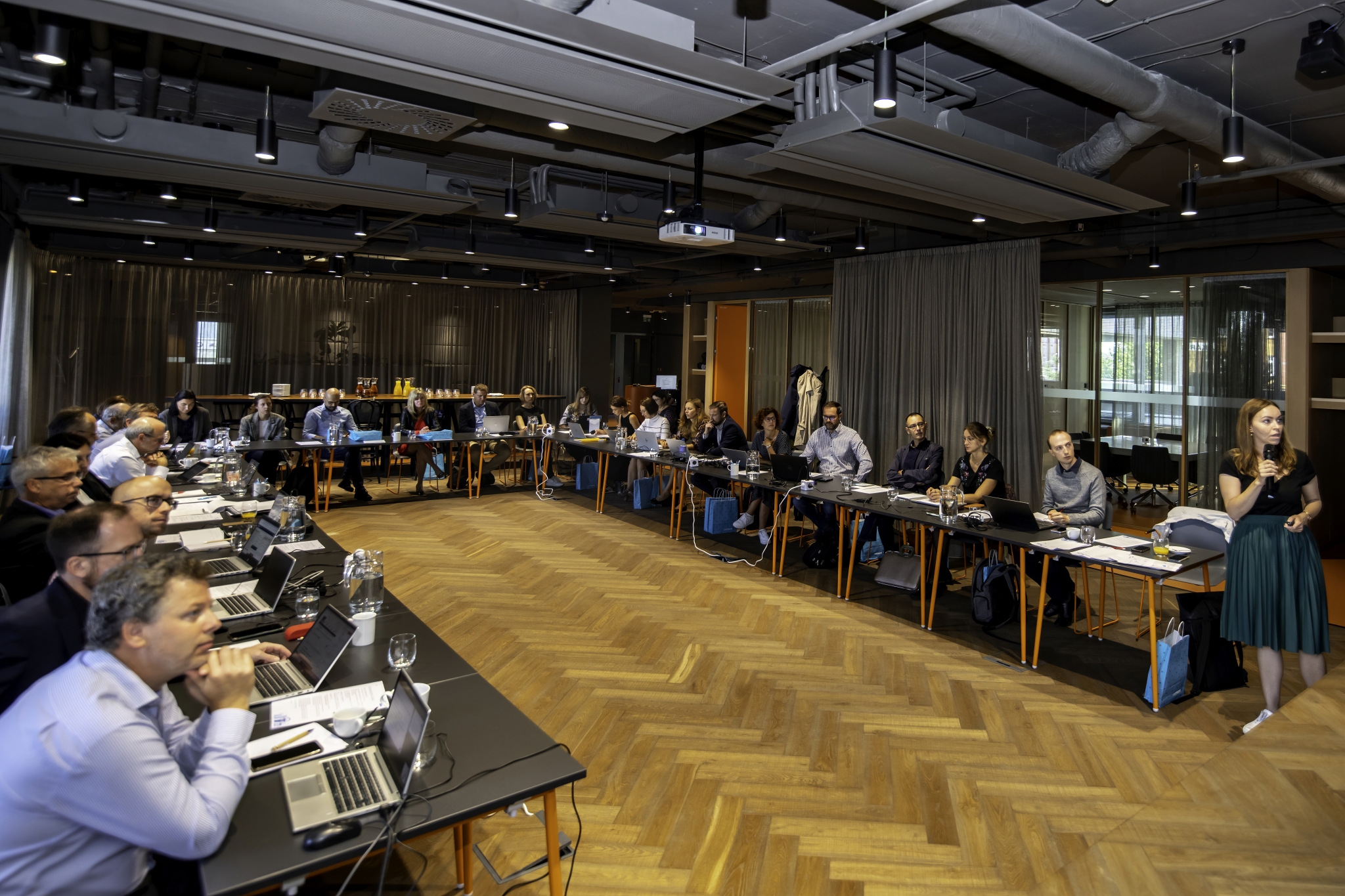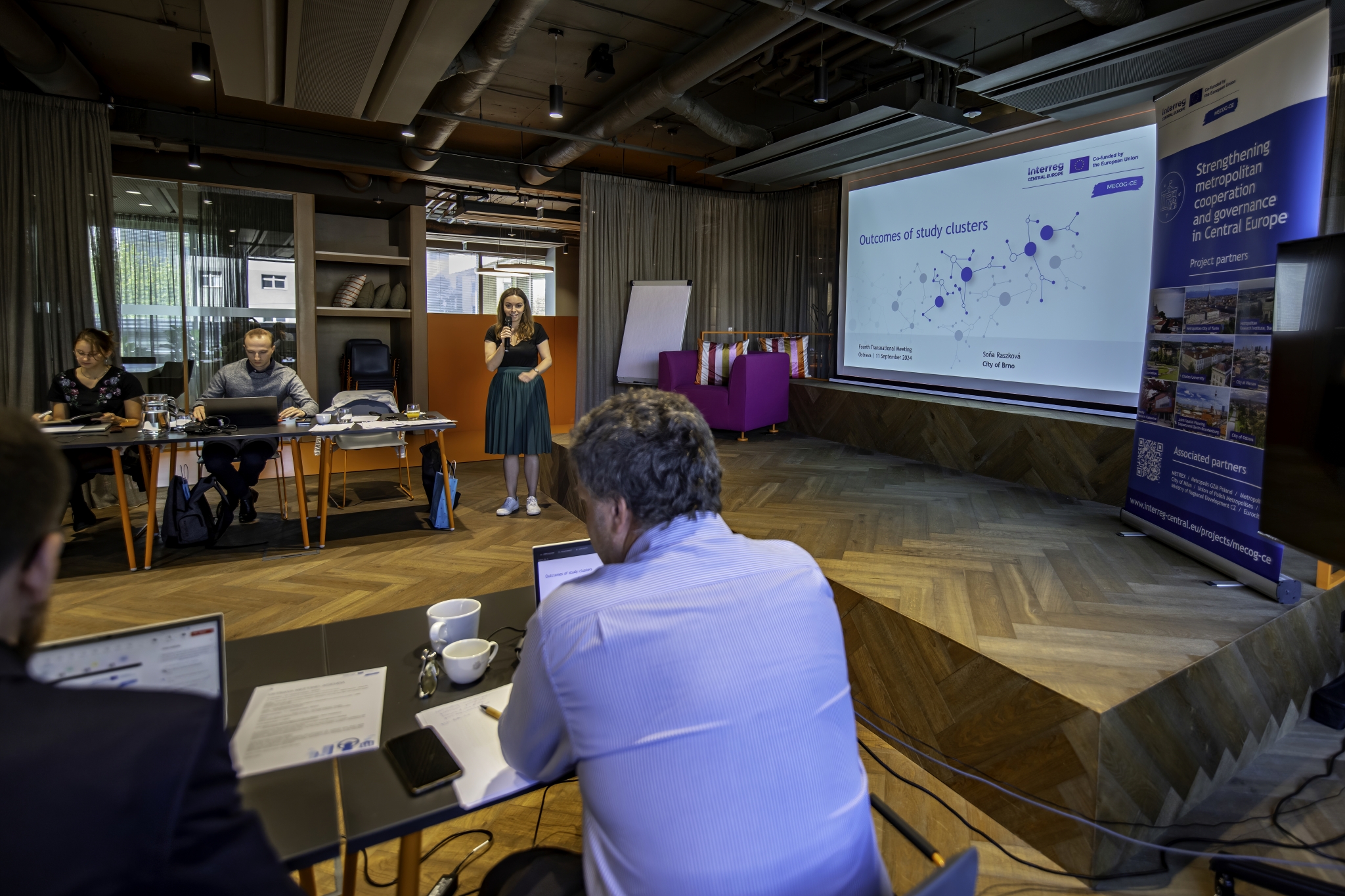The international MECOG-CE project meeting held in Ostrava on September 11-12 gathered partners from metropolitan areas (MAs) across Central Europe to discuss outcomes of study clusters focusing on selected best practices and review the progress of pilot actions and their interim results. Hosted in the heart of Ostrava, the event was a significant milestone for the project strengthening metropolitan cooperation and governance.
The event was opened by Hana Tichánková, Deputy Mayor of Ostrava, who welcomed participants and declared: “This meeting represents an important chance for our cities and metropolitan areas to learn from one another and to build on the successes of the pilot actions. I believe that the discussions and insights gained here will drive a positive change in Ostrava metropolitan area, also in other Central European metropolitan areas.”
The outcomes of study clusters were one of the key points of the meeting. Each lighthouse metropolitan area (experienced in best practice, in the position of supervisor) presented their findings from the learning phase within their study clusters, sharing best practices, methodologies, and insights gained from meetings and study visits. This session provided an opportunity for participants to reflect on the obtained knowledge, reflect on the pros and cons of existing best practices and set the stage for future work.
Another major highlight was the workshop on the progress of pilot actions, where metropolitan partners introduced their ongoing pilot actions. These activities focus on testing of selected best practice with the aim of transferring them to the MA. These are the pilot actions of partners’ metropolitan areas:
Partners presented the interim results from pilot actions testing, and the challenges they encountered. The interactive session allowed participants to discuss the level of transferability of selected tool and to peer-review each pilot action, offering feedback and suggestions for improvement. This cooperative approach highlighted the importance of sharing experiences and supported searching for the optimal solutions, particularly with the regard to the transferability and adoption of best practices across different metropolitan contexts.


Following the work on pilot actions, partners proceeded further the next day with the workshop on new solutions. These new solutions will derive from the results of pilot action testing and contribute to better development of cooperation and governance in metropolitan areas.
The meeting also served as the launch of Work Package 3 (WP3) which will be led by the Metropolitan Research Institute. It marked the beginning of a new phase in the project, focusing on the development of strategy and action plans aimed at strengthening metropolitan governance and cooperation. The WP3 leader presented the proposed outline and key deliverables, initiating a discussion among partners on next steps.
In addition to the formal discussions, the meeting provided many opportunities for networking and informal exchanges among participants. A site visit to Ostrava’s city centre offered insights into the local context and a site visit to Vítkovice Lower Area presented one of the best practices implemented in Ostrava Metropolitan Area.
Overall, the Ostrava meeting was a successful gathering that fostered a deeper understanding of the challenges and opportunities with transfer and implementation of selected best practices to partner metropolitan areas and advanced the metropolitan cooperation. The insights and agreements reached during the meeting will guide the project’s next steps, contributing to the development of effective strategy and action plans that will benefit metropolitan areas across the Central Europe.
After Brno, Warsaw, Stuttgart, transnational meeting in Ostrava is the fourth in the line. At the previous meetings, project consortium presented and disseminated status quo of metropolitan dimension in Central Europe, challenges, and opportunities specific for metropolitan areas, the outcomes of analysis of metropolitan governance systems and best practices in and outside project partners’ MAs, formation of study clusters and the significant document advocating for metropolitan dimension – Common Metropolitan Vision. Information about project progress can be found on the project website.
The project is co-funded by the European Union funds, specifically the European Regional Development Fund, through the Interreg CENTRAL EUROPE transnational and interregional cooperation programme. More information about this project including publicity can be found here.


Register your e-mail address to receive regular updates from the Brno Metropolitan Area.